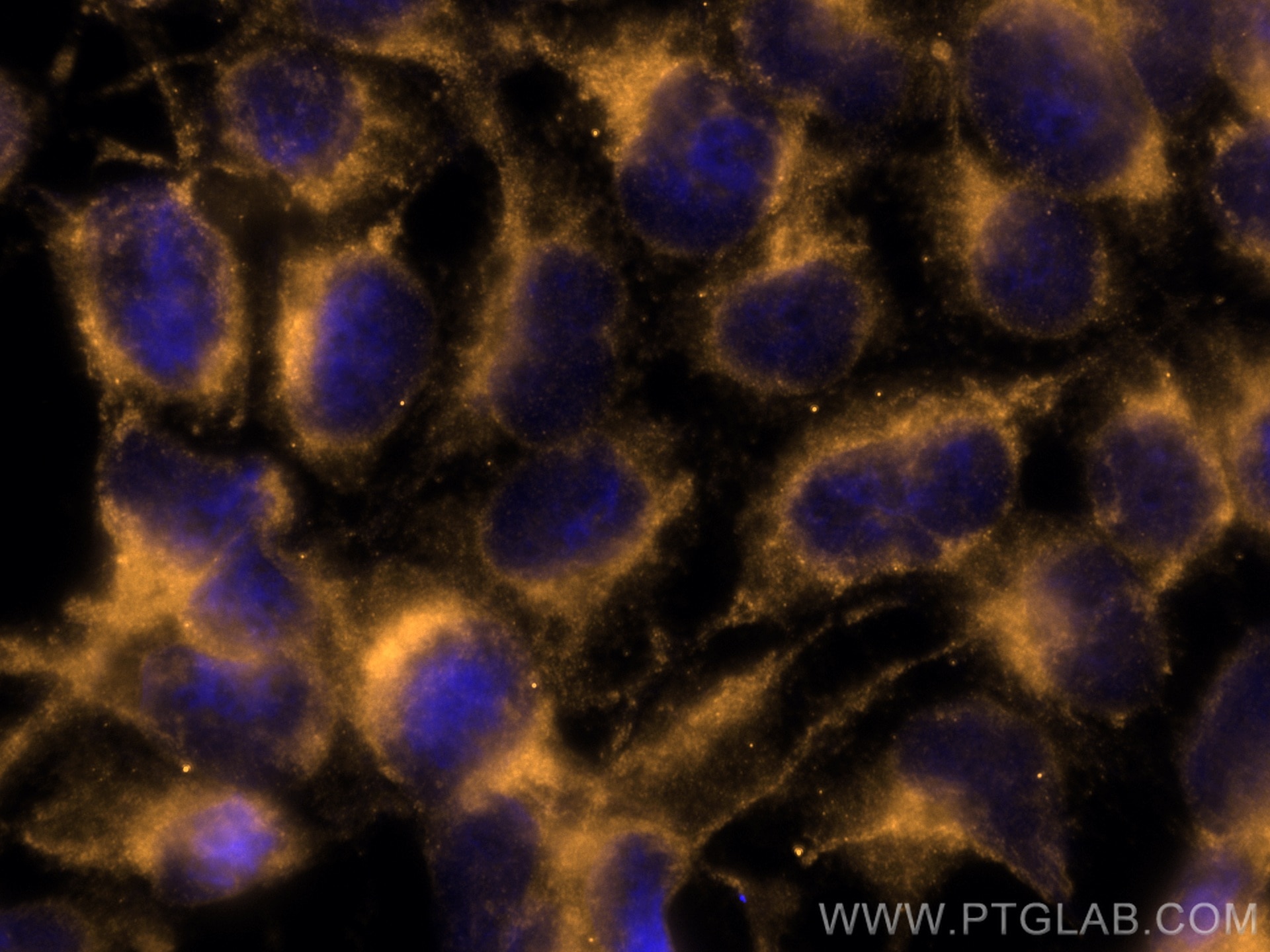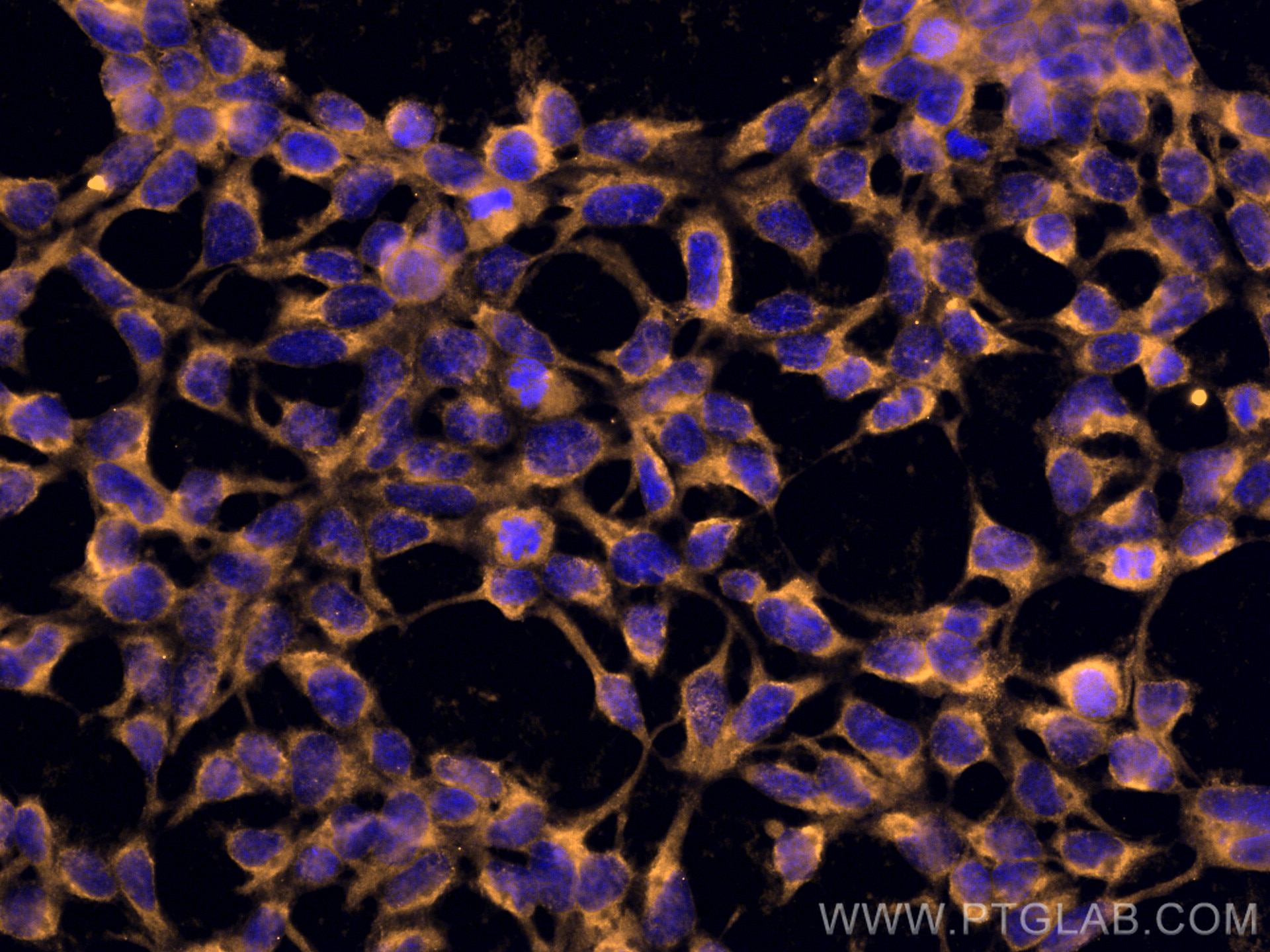- Featured Product
- KD/KO Validated
MTHFD1 Monoklonaler Antikörper
MTHFD1 Monoklonal Antikörper für IF/ICC
Wirt / Isotyp
Maus / IgG1
Getestete Reaktivität
human, Maus, Ratte
Anwendung
IF/ICC
Konjugation
CoraLite®555 Fluorescent Dye
CloneNo.
2B1G3
Kat-Nr. : CL555-67670
Synonyme
Geprüfte Anwendungen
| Erfolgreiche Detektion in IF/ICC | HEK-293-Zellen |
Empfohlene Verdünnung
| Anwendung | Verdünnung |
|---|---|
| Immunfluoreszenz (IF)/ICC | IF/ICC : 1:50-1:500 |
| It is recommended that this reagent should be titrated in each testing system to obtain optimal results. | |
| Sample-dependent, check data in validation data gallery | |
Produktinformation
CL555-67670 bindet in IF/ICC MTHFD1 und zeigt Reaktivität mit human, Maus, Ratten
| Getestete Reaktivität | human, Maus, Ratte |
| Wirt / Isotyp | Maus / IgG1 |
| Klonalität | Monoklonal |
| Typ | Antikörper |
| Immunogen | MTHFD1 fusion protein Ag24553 |
| Vollständiger Name | methylenetetrahydrofolate dehydrogenase (NADP+ dependent) 1, methenyltetrahydrofolate cyclohydrolase, formyltetrahydrofolate synthetase |
| Berechnetes Molekulargewicht | 101 kDa |
| Beobachtetes Molekulargewicht | 101 kDa |
| GenBank-Zugangsnummer | BC009806 |
| Gene symbol | MTHFD1 |
| Gene ID (NCBI) | 4522 |
| Konjugation | CoraLite®555 Fluorescent Dye |
| Excitation/Emission maxima wavelengths | 557 nm / 570 nm |
| Form | Liquid |
| Reinigungsmethode | Protein-G-Reinigung |
| Lagerungspuffer | PBS with 50% glycerol, 0.05% Proclin300, 0.5% BSA |
| Lagerungsbedingungen | Bei -20°C lagern. Vor Licht schützen. Nach dem Versand ein Jahr stabil. Aliquotieren ist bei -20oC Lagerung nicht notwendig. 20ul Größen enthalten 0,1% BSA. |
Hintergrundinformationen
MTHFD1 is a trifunctional enzyme involved in the pathway tetrahydrofolate interconversion, which is part of One-carbon metabolism. MTHFD1 is associated with HCC and CRC progression. It has been reported that MTHFD-deficient patient fibroblasts exhibit enriched MTHFD1 in the nucleus which is critical for de novo dTMP synthesis.(PMID: 31133746, 30997850, 31421459, 25548164)
Protokolle
| PRODUKTSPEZIFISCHE PROTOKOLLE | |
|---|---|
| IF protocol for CL555 MTHFD1 antibody CL555-67670 | Protokoll herunterladen |
| STANDARD-PROTOKOLLE | |
|---|---|
| Klicken Sie hier, um unsere Standardprotokolle anzuzeigen |



